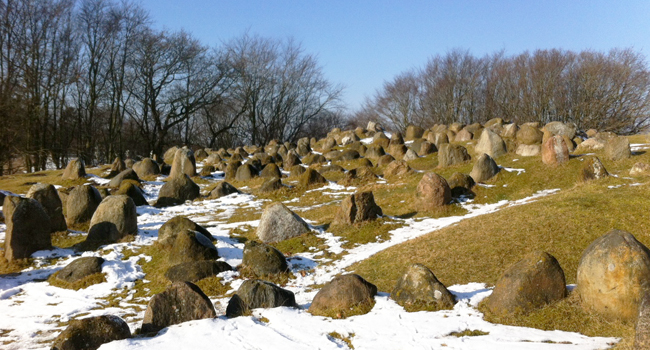
The Science of the Invisible: Abduction and Knowledge
International Workshop and PhD Seminar on Interdisciplinary Approaches to Abduction
Tidspunkt
29.05.2017 kl. 10.00 - 17.00
Beskrivelse
Picture by Luca Tateo.
The Science of the Invisible: Abduction and Knowledge
International workshop and PhD seminar on interdisciplinary approaches to abduction
Overview
Human and social sciences basically deal with invisible objects, that is "Consider what effects, that might conceivably have practical bearings, we conceive the object of our conception to have. Then, our conception of these effects is the whole of our conception of the object." (Peirce). Theoretical notions such as mind, culture, group, etc. are actually developed through this epistemological approach. While claiming to develop concepts through inductive empiricism, the sciences of human being can develop new concepts only by abductive operations. For instance, we can know about culture only by observing its visible effects, but once we have created the notion of culture, then we can categorize some specific human activities by this concept.
Based on Peirce, if abduction is "the process of forming explanatory hypotheses. It is the only logical operation which introduces any new idea” (CP 5.172), it should be relevant every time you have to build a new organization of meaning from "absence" or a specific meaningful configuration which is not strictly inductive/deductive.
Peirce, in "Pragmatism as the Logic of Abduction", writes: “What is good abduction? What should an explanatory hypothesis be to be worthy to rank as a hypothesis? Of course, it must explain the facts. But what other conditions ought it to fulfill to be good? .... Any hypothesis, therefore, may be admissible, in the absence of any special reasons to the contrary, provided it be capable of experimental verification, and only insofar as it is capable of such verification”.
Abduction is thus the science of the absent, of the not-yet-there, which makes it extremely suitable for any developmental approach to the study of human beings.
Objectives
The aim of the workshop is to explore the process and logic of abduction in relation to the ways different disciplines generate new ideas. The goal is to explore the concept of abduction from the perspective of different activities that require something more than inductive/deductive meaning-making. The workshop will also introduce the concept of abduction to some PhD students, providing a specific competence in epistemology that is sometimes overlooked in doctoral training.
The concept is to put together semioticians, psychologists, medical doctors, detectives, archaeologists, etc. We think that examples of abduction could be in the archaeologist or paleontologist that has to reconstruct a scenario of human activity from scattered traces, a doctor who has to interpret the semiosis of symptoms, or a detective which is able to see "beyond" the crime scene, etc.
The planning is a one-day workshop divided in 2 parts: a field activity at the Lindholm Høje archaeological site and an afternoon workshop session to develop the concept of abduction.
Scientific programme
May 29 at the Lindholm Høje Museum
10-12: Field work on the archaeological site: reconstructing the life based on invisible evidences
12-13: Guided visit to the museum
13-14.30: Lunch at the museum restaurant
14.30-16.30: Workshop discussion of the field work from the perspective of each participant
16.30-17:00: How to implement abduction in interdisciplinary research, wrap up and planning of the publication
Outcomes
The final outcome will be an international scientific publication: the collective volume “The science of the invisible: abduction, generalization and construction of knowledge” to be published in the peer-reviewed book series “Innovations in Qualitative research” in 2018 by Information Age Publisher,USA.
Conveners
Luca Tateo, Pina Marsico and Jaan Valsiner, Centre for Cultural Psychology, Aalborg University
Participants (in alphabetical order)
Howard G. Callaway, philosopher, Temple University USA
Jan Mehlum, sociologist and crime writer, University College of Southeast Norway
Dominik Stefan Mihalits, psychoanalyst, Sigmund Freud University Vienna, Austria
Rubina Raja, archaeologist, Aarhus University, Denmark
Felix Riede, anthropological archaeologist, Aarhus University, Denmark
Frederik Stjernfelt, semiotician, Aalborg University, Denmark
Preliminary readings
Tateo, L. (2016). Toward a cogenetic cultural psychology. Culture & Psychology, 22(3), 433-447.
Shennan, S. (2004). Analytical archaeology. A companion to archaeology, 3-20.
Callaway, H. G. (2014). Abduction, competing models and the virtues of hypotheses. In Model-Based Reasoning in Science and Technology (pp. 263-280). Springer Berlin Heidelberg.
Raja, R. and Rüpke, J. (2015): Appropriating religion: methodological issues in testing the “Lived Ancient Religion” approach. In Religion in the Roman Empire 1:1, 11-19.
Raja, R. and Rüpke, J. (2015): Archaeology of religion, material religion and the ancient world. In A Companion to the Archaeology of Religion in the ancient world, Eds. Raja, R. and Rüpke, J. (London: Blackwells), 1-26.
Stephenson, T. (2015). Interpretation as a Cognitive Instrument: Psychotherapy Science as an Attempt to Pool Paradigm-Based Systems of Interpretation. In Psychotherapy Research (pp. 117-147). Springer Vienna.
Hoffmann, M. (1999). Problems with Peirce's concept of abduction. Foundations of science, 4(3), 271-305.
Tateo, L. (2015). The nature of generalization in psychology. In Reflexivity and Psychology (pp. 45-64). Information Age Publishing.
The workshop will be open for up to 15 PhD students interested in developing the topic. They will be invited to participate in both the workshop and the final publication.
Registration
Registration for participation of both PhD students and regular audience is based on a first-come/first-served option, until we reach the maximum number of 25 participants. 2 ECTS points will be attributed for the participation to the whole workshop, including preparation, attendance and final publication. Participation includes entrance to the archaeological site, museum and for lunch. To register, please send an email to luca@hum.aau.dk by April 24, 2017 at latest.
For further information about registration please contact Niels Bohr Centre:
Kroghstræde 3, Room 4.117
DK-9220 Aalborg Øst
Ph: (+45) 9940 3177
Email: luca@hum.aau.dk or mkat@hum.aau.dk
Arrangør
Luca Tateo
Adresse
Vendilavej 11, 9400 Nørresundby
Tilmelding inden
24.04.2017 kl. 12.00
